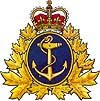
The following piece of correspondence was received this morning. I have no doubt the author and his colleagues are very educated people. After all, they are budding engineers, are they not? People that put "P.Eng" at the end of their name, so that you'll know they're super-smart? Yeah... that's them alright.
So anyway, this e-mail deals with an idea they have for designing an autonomous mainsail for sailing boats. That, one would have to guess, would be a mainsail that would deploy and furl under it's own power, remotely or automatically controlled. This is all well and good, but read on so you can get a better gist of what he is asking us here:
Quote: - Hello,
I am an engineering student at the **** ******* Institute, University of Southern *******.
Together with fifteen other engineering students I am taking part in a project regarding making an autonomous mainsail for sailing boats.
The exact concept and target group has not yet been decided and therefore we would be pleased if you would help us to fill out a survey made for your company.
You can either reply to this mail and just fill out the 12 questions below, or you can return the attached document.
Survey.
How do you organize your search & rescue activities at the moment? There are 3 JRCCs across Canada. One in CFB Halifax, NS... one in CFB Trenton, ON and one in CFB Esquimalt, BC. There are also 2 Sub-Rescue Stations, one in St.John's, NL and one in Québec City, QC.
What is the most important fact to accomplish a rescue mission? Time. The difference between life and death in many rescue missions, is routinely measured in mere minutes.
What task takes the most time? Finding the victim.
How do you search for people at the moment? By air and sea using DND and Coast Guard assets.
What role does technology play in these activities? That depends largely on the equipment onboard the stricken vessel or aircraft.
How do you think will search & rescue activities be organised in 5 years? In a country as vast as Canada, no differently.
How many search boats do you have? 41 SAR Lifeboats, 4 Offshore Patrol vessels, 7 Mid-Shore Patrol vessels, 5 Medium-Endurance Multi-Task vessels, 7 High-Endurance Multi-Task vessels.
How much does it cost a year to keep the boats operable? Couldn't tell you, but it's money well spent according to those we rescue annually.
How much fuel does a boat consume? Depends on the size of the vessel, the load, weather conditions, sea conditions and the distance covered.
Do you have permanently search boats on the water or just in case of emergency? Both.
Do you care about environmental issues? D-uh! Hello...??? We"re Fisheries and Oceans Canada...
Can you imagine using autonomous sail boats? Absolutely not.
What would you use it for? Target practice for our small-arms teams.
You are done! You're a 'tard!
Thank you! Think nothing of it!
If you are interested in knowing more about the project or have any questions, feel free to contact me on my phone number.
Thank you for your help!
Best regards, - End quote.
*********************************
So, if you're awake and alert as you're reading this, you can clearly see where he's heading with this. He is looking for input as to how the Canadian Coast Guard might employ an autonomous sailboat, for carrying out search and rescue missions. On the surface, it probably even sounds like a plausible idea. Unless of course you're that person treading water, waiting to be found and rescued.
In his survey (for which I've taken the liberty of filling in the blanks...), he asks the question: "What is the most important fact to accomplish a rescue mission?" Allowing for bad English, we might assume he is in fact asking what the most important factor is, when conducting a rescue. The answer to that is simple: Time.
Time is the all important factor when it comes to search and rescue. In localizing the person in distress, in finding them and in rescuing them. Disasters don't usually happen in fair weather. Searching for and reaching someone in mountainous seas, howling winds and driving rains, is not something you are going to accomplish in a timely manner, using a fucking sailboat. The same applies in fair weather conditions, by the way. To be perfectly honest about this, using a sailboat for any search and rescue application, is retarded. It is something that might have had merit in the days of the Egyptian Dynasties, but not since the invention of the steam engine.
So here again, we can appreciate the difference between the terms: educated and intelligent. It IS educated to be able to conceive, design and produce an autonomous mast. It is NOT intelligent to think that this would have any viable applications in the world of search and rescue. Yet one more case of being over-educated and under-smart.
So anyway, this e-mail deals with an idea they have for designing an autonomous mainsail for sailing boats. That, one would have to guess, would be a mainsail that would deploy and furl under it's own power, remotely or automatically controlled. This is all well and good, but read on so you can get a better gist of what he is asking us here:
Quote: - Hello,
I am an engineering student at the **** ******* Institute, University of Southern *******.
Together with fifteen other engineering students I am taking part in a project regarding making an autonomous mainsail for sailing boats.
The exact concept and target group has not yet been decided and therefore we would be pleased if you would help us to fill out a survey made for your company.
You can either reply to this mail and just fill out the 12 questions below, or you can return the attached document.
Survey.
How do you organize your search & rescue activities at the moment? There are 3 JRCCs across Canada. One in CFB Halifax, NS... one in CFB Trenton, ON and one in CFB Esquimalt, BC. There are also 2 Sub-Rescue Stations, one in St.John's, NL and one in Québec City, QC.
What is the most important fact to accomplish a rescue mission? Time. The difference between life and death in many rescue missions, is routinely measured in mere minutes.
What task takes the most time? Finding the victim.
How do you search for people at the moment? By air and sea using DND and Coast Guard assets.
What role does technology play in these activities? That depends largely on the equipment onboard the stricken vessel or aircraft.
How do you think will search & rescue activities be organised in 5 years? In a country as vast as Canada, no differently.
How many search boats do you have? 41 SAR Lifeboats, 4 Offshore Patrol vessels, 7 Mid-Shore Patrol vessels, 5 Medium-Endurance Multi-Task vessels, 7 High-Endurance Multi-Task vessels.
How much does it cost a year to keep the boats operable? Couldn't tell you, but it's money well spent according to those we rescue annually.
How much fuel does a boat consume? Depends on the size of the vessel, the load, weather conditions, sea conditions and the distance covered.
Do you have permanently search boats on the water or just in case of emergency? Both.
Do you care about environmental issues? D-uh! Hello...??? We"re Fisheries and Oceans Canada...
Can you imagine using autonomous sail boats? Absolutely not.
What would you use it for? Target practice for our small-arms teams.
You are done! You're a 'tard!
Thank you! Think nothing of it!
If you are interested in knowing more about the project or have any questions, feel free to contact me on my phone number.
Thank you for your help!
Best regards, - End quote.
*********************************
So, if you're awake and alert as you're reading this, you can clearly see where he's heading with this. He is looking for input as to how the Canadian Coast Guard might employ an autonomous sailboat, for carrying out search and rescue missions. On the surface, it probably even sounds like a plausible idea. Unless of course you're that person treading water, waiting to be found and rescued.
In his survey (for which I've taken the liberty of filling in the blanks...), he asks the question: "What is the most important fact to accomplish a rescue mission?" Allowing for bad English, we might assume he is in fact asking what the most important factor is, when conducting a rescue. The answer to that is simple: Time.
Time is the all important factor when it comes to search and rescue. In localizing the person in distress, in finding them and in rescuing them. Disasters don't usually happen in fair weather. Searching for and reaching someone in mountainous seas, howling winds and driving rains, is not something you are going to accomplish in a timely manner, using a fucking sailboat. The same applies in fair weather conditions, by the way. To be perfectly honest about this, using a sailboat for any search and rescue application, is retarded. It is something that might have had merit in the days of the Egyptian Dynasties, but not since the invention of the steam engine.
So here again, we can appreciate the difference between the terms: educated and intelligent. It IS educated to be able to conceive, design and produce an autonomous mast. It is NOT intelligent to think that this would have any viable applications in the world of search and rescue. Yet one more case of being over-educated and under-smart.
















No comments:
Post a Comment